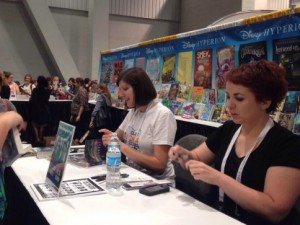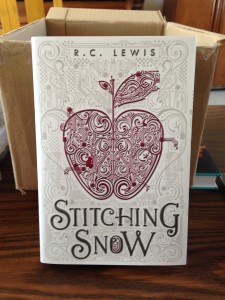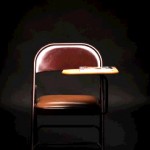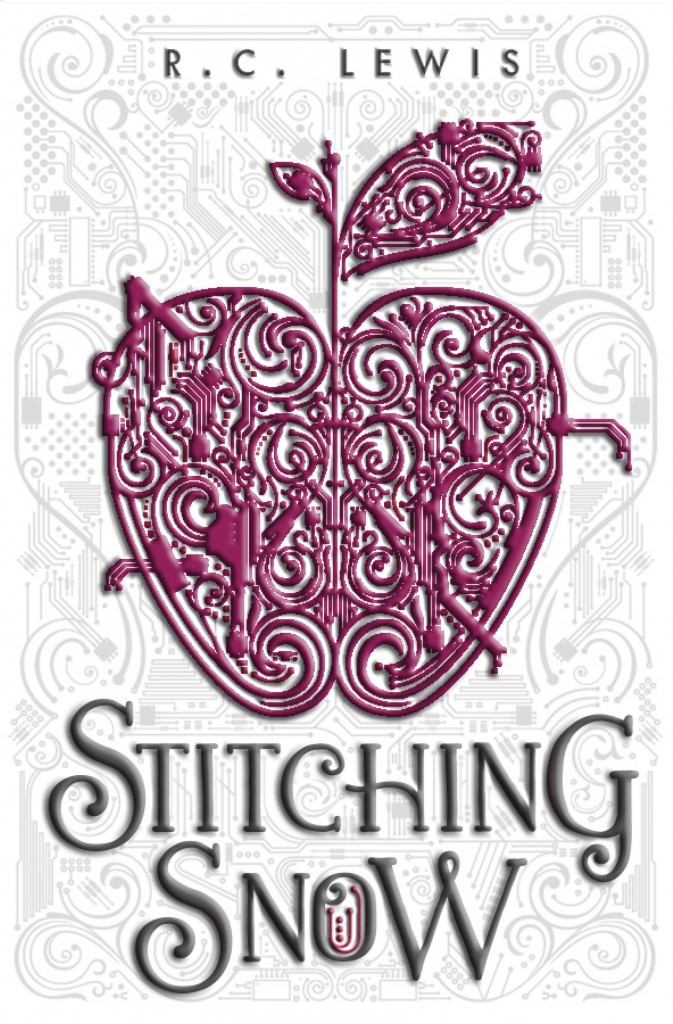The Gathering of Wits and Nerves
A long time away from blogging, a lot of excuses. Last school year was tough—emotionally exhausting and stressful. It was hard to come up with anything to say that wasn’t venting, and no one needs that.
Then the momentum was gone. Still not sure I had anything to say.
Things happened, though. I survived the school year. I lost my editor as she got an amazing-awesome job at another house. (For those keeping count, this is the second time this has happened to me. Editors should flock to me if they want promotions.)
I also went to Las Vegas for the American Library Association (ALA) annual conference and signed ARCs—my first-ever author event! Look, here’s proof:
I’m advising student council at my school for the first time ever, and I also went to a leadership conference with most of the kids over the summer. Lots of fun there.
Now the school year has started … well, actually, we’re almost through the first quarter. My classes feel more balanced for the most part, and I’m making things up as I go with student council. Generally, I feel like I have a better grip on things.
Well, except for the fact that my debut novel launches in ten days. Not sure I’m gripping that just yet. I keep expecting it to feel more real, but it doesn’t quite yet. Not even with a hardcover in my hands:
Maybe it’ll feel real when I’m standing in front of people, talking about it at the launch party. (If I don’t pass out and/or run screaming from the venue.) Or maybe when I see it stocked on shelves at the bookstore.
Maybe the rational, logical side of me took charge of this and accepted it as “real” ages ago, and that’s why I’m not noticing a difference. Maybe two years of students saying, “You wrote a BOOK??” helped it sink in. (If so, thanks, kids!)
So now it’s time for me to pull together. To gather my nerves for everything happening around the launch, and to hopefully gather my wits and come up with a few things worth sharing here now and then.
Wish me luck. 🙂
Empty Chairs at Empty Tables … or Desks
There are a lot of things we can say about suicide. We can say that an attempt is a cry for help. We can discuss warning signs. For those who are struggling and contemplating, we can tell them not to give up. We can point them to hotlines and support resources.
As a teacher, I’ve had training on these things and dealt with them on various levels.
Today I’m thinking about realities I haven’t thought about before. How do you handle losing a student this way?
How do you help teachers and students who have to face an empty desk that signifies so much more than an absent classmate?
How do you comfort colleagues who think they should have seen something, done something differently, been more observant?
And perhaps the toughest one of all—how do you help students who realize they should’ve treated their classmate better?
If a student bullied another, we don’t want to say, “No, you didn’t do anything wrong.” Perhaps they need to feel that responsibility, let it serve as a drive to change. On the other hand, we don’t want to break another student when we’ve already lost one.
So what do you say to a student who’s upset because he remembers making fun of the kid who’s gone?
I really don’t know.
Some of the most eye-opening conversations have been with the in-betweeners. Kids who say, “I didn’t really know him. I saw him around. Some people were mean to him. That wasn’t cool, so I never made fun of him … but y’know … I never really tried to make anyone else stop. I should’ve.”
That goes to show there is no in-between. With bullying, if we’re not part of the solution, we’re part of the problem.
We need more solutions moving forward.
Wherein I Have a Cover
First, a note that it’s time for me to get back into blogging, so keep an eye out here as well as Tumblr to hear all the news and random musings.
If you follow me on any kind of social media, you already know this, but here it is for the record: my cover for Stitching Snow!
The awesome people at YABooksCentral hosted the official reveal, and the giveaway is ongoing. Be sure to visit and enter.
Being Thankful with the Class of 2k14
The Class of 2k14 wants to share our thanks. For other class members’ posts, check here.
It’s that time of year, and I have to say, I’m thankful for this whole year. In particular:
- Several rounds of edits, because it’s cool that I have the opportunity to work with the editors I have.
- My friend Mindy McGinnis having her book debut, because I’ve been able to learn so much from watching her go through it all a year ahead of me.
- Friends new and old in the writerly world, including at Class of 2k14, AgentQuery Connect, and OneFour KidLit, because insanity is so much better when it’s shared.
- Family, including a brand-new nephew, who—at the time of this writing—should be arriving any minute.
- I’m even thankful for all the craziness that comes with the day-job, including the kids who make me want to scream, because hey, challenges keep us growing.
What are you thankful for this year?
Losing My Religion
On November 8th, the New York Times ran an article by one of its religion columnists titled “Mormons Offer Cautionary Lesson on Sunny Outlook vs. Literary Greatness” … which, naturally, set off at least half a dozen “Are you kidding me?” reactions in my brain.
The none-too-subtle implication that genre and YA fiction are inferior forms of literature? As someone who writes (and loves) YA sci-fi, yeah, I have a problem with that.
The conclusion that all “Mormon authors” write cheery, sunny stories? Well, some do. Just like some non-Mormon authors do. And some (plenty) don’t. Stop with the generalizing, please-and-thank-you.
Speaking of generalizing, that reference to parents telling children to only journal positive things, never negative? An isolated incident as far as I know, because I have never heard of any parents teaching that … and I grew up in Utah!
More than the article itself, though, I was really interested in the ensuing conversation I was able to observe among several Mormon (or not!) Utah-based authors. One noted that at signings and events, people are always remarking on her religion or asking her about it.
A published friend of mine is Lutheran. Yet that doesn’t ever seem to come up in her professional dealings as an author.
It raised the question for me: Am I a Mormon who happens to be an author, or an author who happens to be Mormon?
When it comes to my writing, I’m going to go with the latter. For one, I don’t write “Mormon literature.” More importantly, yes, my beliefs and background have had some influence on my stories … but so has the fact that I’m the middle child, the oldest girl, a math teacher, and a cellist. These aren’t things that create an “agenda” in my writing. They’re just things that have contributed to the lens I see the world through, and therefore naturally filter in varying degrees into my work.
Here’s the thing. Even when I do have an element that could be taken as reflective or symbolic of one thing or another, I don’t actually care about the reader taking it that way. I’ve had people read one of my manuscripts and say, “Wow, (X) was such a great symbol for _______.” Annnnnnd it’s nothing I was aiming for when I wrote it.
And that’s cool.
Even before I started writing, I never cared as much about an author’s intent as I did about the meaning the reader finds. (This was a problem when it came to English class.)
So that’s what I’m going to keep doing.
The title of this post doesn’t mean my religion is going anywhere. It just means what we should already know:
That generalizations and labels stink.
Who Needs the Educating Here?
The other day, a colleague emailed this link to the staff at my school, particularly because the university where it happened is local to us. This just weeks after some guys of less-than-optimal intelligence ran a similar “prank” at Vidcon. (I’m linking to John Green’s post summarizing Vidcon’s response to those incidents and more, because just about anywhere else runs the risk of stumbling into the Dreaded Comments Section.)
My first reaction was kind of blank. Like my brain refused to believe what I was reading, because surely guys around here wouldn’t be that stupid.
I stand corrected.
Once I un-blanked, other reactions kicked in. Feeling sorry for the girls (and few guys) who had to deal with the jerks. Imagining how I would’ve responded if put in that situation. Then I went back to the original email and noted the brief intro to the link:
Prank with disturbing ramifications. What are we teaching our daughters?
Whoa, wait, what was that?
With all respect to my colleague (who is an awesome person), that question veered off-course for me. Sure, I’d like it if our girls didn’t feel like they had to be polite, play along, laugh nervously. I’d like them to know it’s okay to tell someone to back off. But much more importantly:
What are we teaching our BOYS to make them think it’s okay to invade anyone’s personal space like that?
What I really want for those girls is for them to be able to walk around their campus without strangers trying to manhandle them while someone records for cyber-posterity.
Can we get on that, please?



